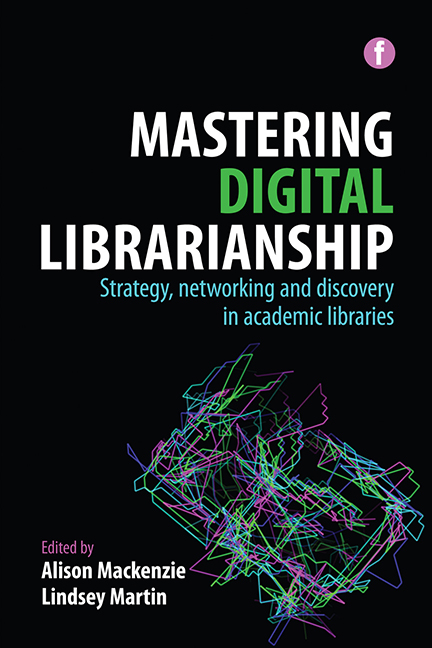Introduction
Published online by Cambridge University Press: 13 September 2022
Summary
What is academic librarianship when it is no longer characterized by the traditional practices of cataloguing, acquisitions, content management and committee attendance? Much has been achieved over the past two decades by harnessing technology to advance the availability of content and to better streamline and navigate access to resources. New learning environments have also emerged to facilitate academic activity and considerable investment has been made to extend and introduce new communication choices for users of library services. But are these by themselves achieving a level of mastery of the digital environment which will secure a role for the profession of librarianship into the future? Is there a need to accept that the future gains from continuing to identify libraryrelated uses for the internet are diminishing and that new approaches to librarianship should be sought?
Lorcan Dempsey (2012) suggests that if librarians want to be seen as experts, then their expertise has to be visible. He makes a number of observations – is library expertise visible when people are searching? Can they easily discover a personal contact? How should librarians position themselves to attract attention from other professional networks? Are they seen as natural supporters, partners and collaborators? How are libraries positioned to engage with emerging social and professional networks?
The American College and Research Libraries (ACRL)1 planning and review committee, in its 2012 top ten trends in academic libraries, both endorses and expands on Dempsey's observations, further confirming that libraries and librarians need to be engaged in identifying more effective approaches to communicating their value, curating and preserving digital resources, forging new partnerships both within and beyond institutional boundaries and adapting their services to meet the expectations of new generations of users. Alongside many admirable and successful initiatives, some of which are discussed in this book, a turning point has been reached where some of the traditional measures of value for an academic library no longer hold the relevance or importance they once had. What is now tasking many librarians is the identification of new measures of success and how these can be achieved and made visible.
One challenge to achieving this is that ‘too many librarians see their collections, not the community, as their jobs’ (Lankes, 2012). He proposes that librarians and library practice need to build on the understanding that knowledge is created through conversations with their communities.
Information
- Type
- Chapter
- Information
- Mastering Digital LibrarianshipStrategy, networking and discovery in academic libraries, pp. xv - xxiiPublisher: FacetPrint publication year: 2014
